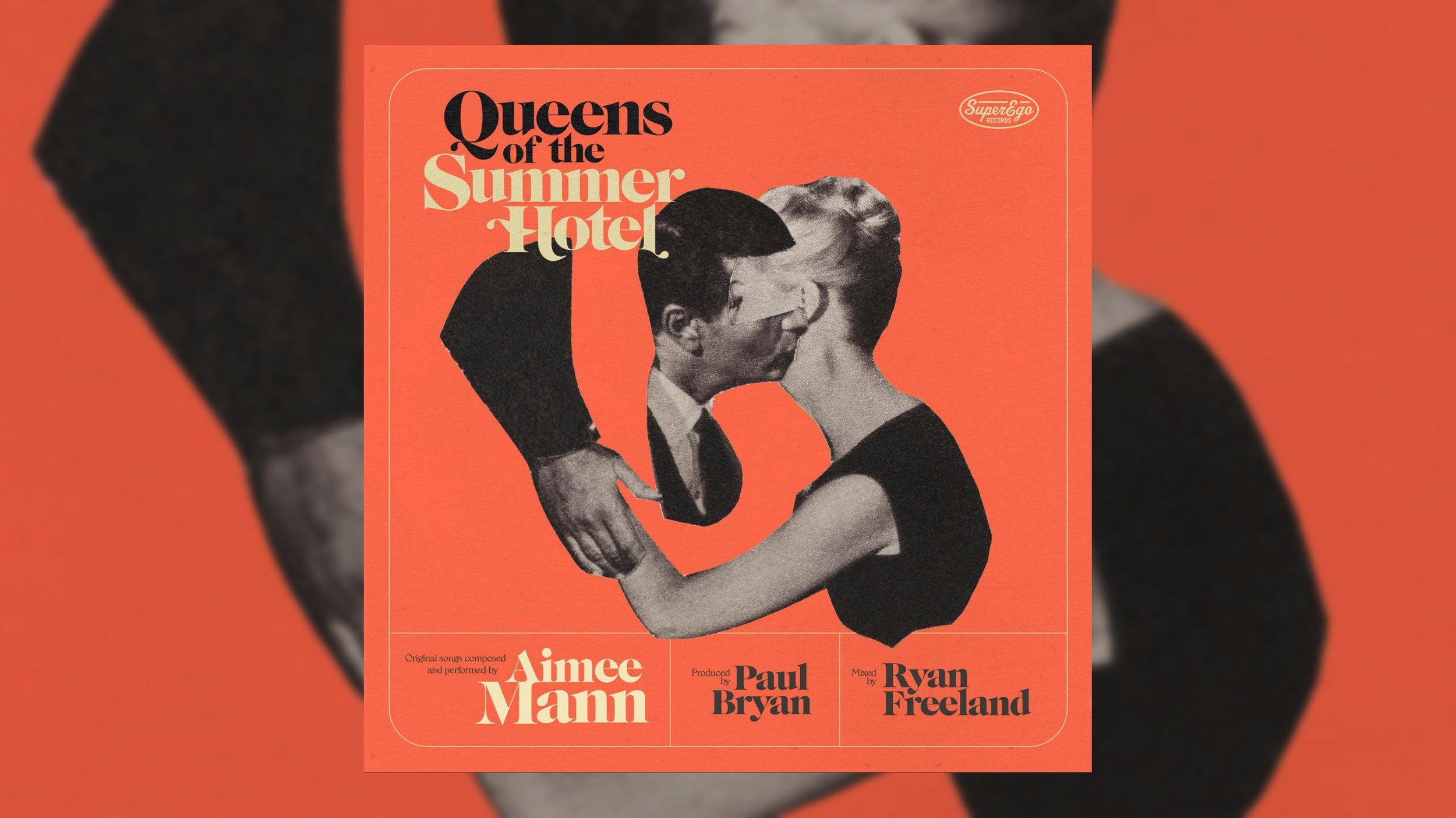Aimee Mann
Queens of the Summer Hotel
SuperEgo Records
Listen Below
In the opening verse of Queens of the Summer Hotel’s penultimate song “You’re Lost,” Aimee Mann reflects, “When nothing keeps you together / When nothing is holding you in / You're a balloon and all the world's a pin / No scaffold or frame or structure / No bones beneath your skin / Where do you end and where does she begin?” Taken together, and owing to her always-adept use of metaphor and candor, the lines instantly remind us of Mann’s proven penchant for examining mental trauma, both eloquently and empathetically.
Indeed, time and time again across her nearly 30-year solo recording career, dating back to her 1993 debut LP Whatever and most recently on her 2017 album Mental Illness, Mann has given voice and validation to the psychological torment that many tend to internalize, while offering consolation through her allusions to the power of hope and resilience.
Queens of the Summer Hotel—Mann’s tenth studio affair—was originally conceived as the musical accompaniment to a forthcoming, pandemic-delayed theatrical adaptation of Girl, Interrupted, Susanna Kaysen’s 1993 memoir that recounts her experiences as a patient in a Massachusetts psychiatric hospital in the late 1960s. And while the album’s song sequencing—which features a handful of brief interludes and abbreviated two-to-three-minutes-long compositions—seems thoughtfully constructed for the scene-by-scene progression of the stage production in question, the entirety of the project makes for an absorbing, ultimately rewarding listen.
Aided by the mélange of strings, woodwinds and piano-imbued arrangements orchestrated by her trusted collaborator Paul Bryan, Mann’s crystalline and reassuring voice resonates throughout. She draws inspiration from Kaysen’s narrative, but also from her own experiences, as she recently confided in an expansive interview with The Guardian’s Laura Snapes. “I was a fairly insular person—as much as I’m telling a perfect stranger about my time in the nuthouse,” Mann explains while recounting her time spent at the Sierra Tucson rehab center. “I didn’t want to be around other people—which is a symptom in itself, when containment becomes the most important thing.”
Direct references to Kaysen’s book can be found in the waltz-like “Robert Lowell and Sylvia Plath,” which recalls the two famous poets who were also admitted to McLean Hospital (other notable patients admitted to the institution include Ray Charles, Marianne Faithfull and James Taylor). Meanwhile, “At The Frick Museum” calls to mind Johannes Vermeer’s painting (Girl Interrupted at Her Music) that inspired the title of Kaysen’s memoir.
Other notable moments include album opener “You Fall,” an ode to fragility propelled by an insistent piano and sweeping symphonics. The ephemeral “Little Chameleon” examines the fluidity of feminine identity before segueing into the plaintive “You Don’t Have Room,” an articulate acknowledgement of self-doubt and the fear of making mistakes (“So you're a quiet smile, a pretty face / That never argues, just in case you're wrong”).
Unveiled as the album’s lead single, “Suicide Is Murder” strikes at the self-destructive heart of the tragic act not just for the victim, but for the loved ones who are left to reconcile why it happened and what actions they could have taken to prevent it. “I think the phrase ‘suicide is murder’ took on a meaning for me as it’s the worst thing to have to deal with in the aftermath,” Mann explains in an official statement. “It’s just terrible. Because every person who knows the person who committed suicide will blame themselves in some way for not noticing or stepping in or doing something. They’ll till the end of their days, say, ‘was there something I could have done?’”
Kicking off the album’s final third, the guitar-driven “Burn It Out” suggests the inception of the healing process, even if it might often assume the form of denial, as Mann contemplates setting our emotional baggage ablaze, never to be felt again (“All of the shame that was yours to bear / Will it ignite like a signal flare / Can you just burn it out?”).
With horns, strings and keys coalescing to conjure a graceful, melodic arrangement evocative of late ‘60s/early ‘70s blue-eyed soul (a la Carole King and Dusty Springfield), the concluding “I See You” is a stunningly beautiful anthem of understanding and redemption. “People get crushed and broken,” Mann sings. “People lose and they grieve / But I see / And I believe / I see / And I believe.” It’s a welcome reminder that sometimes the key to helping people in need simply entails acknowledging their feelings of despair, with an open heart and without judgment.
Admittedly, listening to Queens of the Summer Hotel’s pervasively sobering songs—albeit enveloped within rather lovely instrumentation illuminated by lush, cinematic flourishes in abundance—requires one to be in the right state of mind. However, given the right disposition and a willingness to dig deeper into the poignant portraits of the human spirit contained within, it’s easy to embrace the album for what it is: an honest, honorable exploration of not just human vulnerability, but also, and importantly, the courage and inner strength that can be summoned to carry on through our darkest times.
Notable Tracks: “Burn It Out” | “I See You” | “You Don’t Have Room” | “You’re Lost”
LISTEN:


